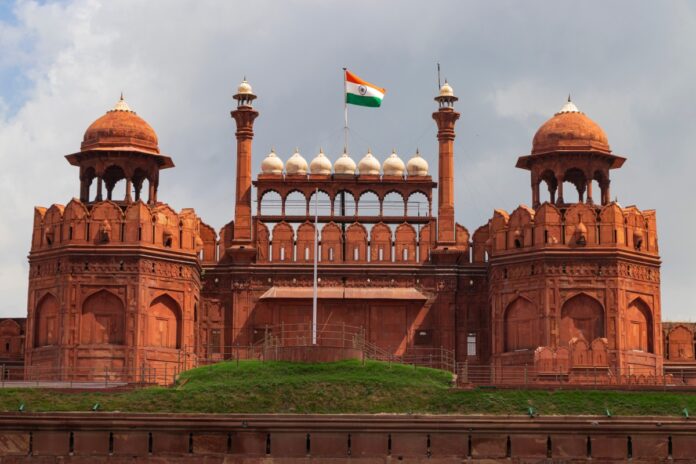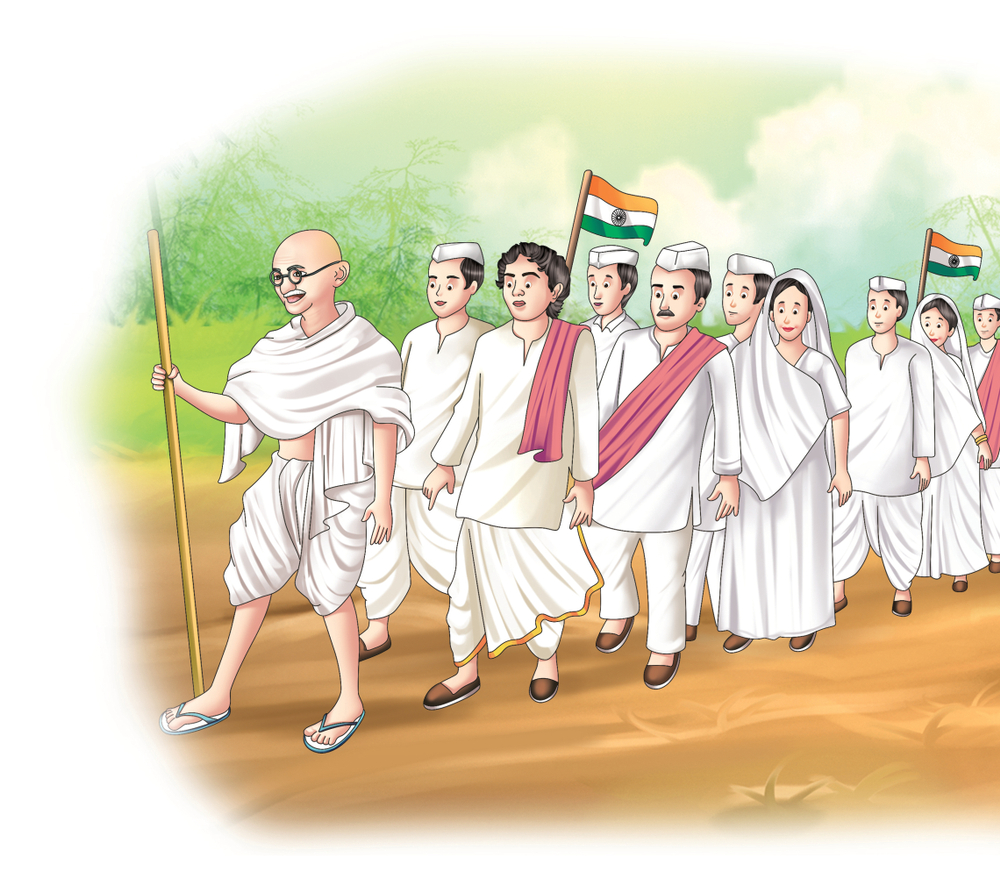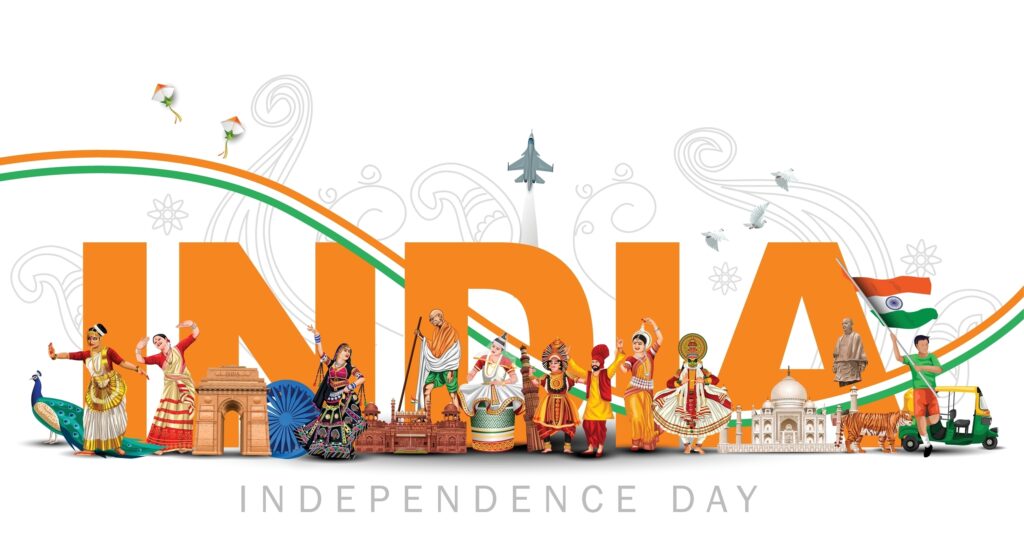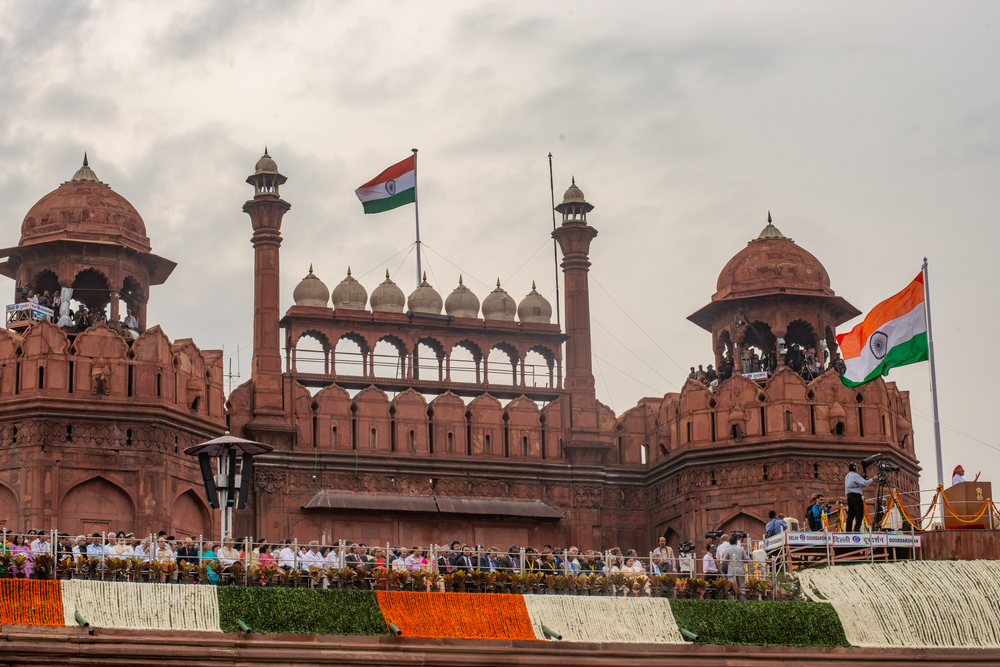Independence Day 2023 is just around the corner. As the nation prepares to mark its 77th Independence Day India of freedom, the air is filled with an overwhelming sense of pride and patriotism. On this momentous occasion, every Indian heart swells with joy as we recall the sacrifices made by our forefathers and the indomitable spirit that led to the dawn of a new era. Join us as we delve into Independence Day 2023: Date, History, Significance, Celebration that await us on this glorious day!
Independence Day History
India’s Independence Day history is closely tied to its struggle for freedom from British colonial rule. Here’s a brief overview of the key events leading up to India’s independence:
- British Colonial Rule: India had been under British rule for nearly two centuries, starting from the mid-18th century. The British East India Company initially established trade and gradually expanded its control over Indian territories.
- Indian Independence Movement: As the 19th century progressed, India witnessed the rise of a nationalist movement seeking independence from British rule. Leaders like Mahatma Gandhi, Jawaharlal Nehru, Subhash Chandra Bose, Bhagat Singh, and many others played crucial roles in mobilizing the masses against British oppression.
- Non-Cooperation Movement: In 1920, Mahatma Gandhi launched the Non-Cooperation Movement, urging Indians to boycott British institutions, goods, and services. This marked a significant step towards India’s quest for independence.
- Civil Disobedience Movement: The Civil Disobedience Movement, initiated by Gandhi in 1930, further intensified the struggle. Indians participated in acts of civil disobedience, including the famous Salt March in 1930, where Gandhi led a 240-mile journey to protest against the British salt tax.
- Quit India Movement: In 1942, during World War II, the Quit India Movement was launched, demanding an immediate end to British rule. Mass protests and civil disobedience movements spread across the country.
- Independence and Partition: The pressure from the Indian independence movement, coupled with the weakening of British power after World War II, led to India’s independence. On August 15, 1947, India finally gained freedom from British rule. The day also marked the partition of India, leading to the creation of Pakistan as a separate nation.
Since then, India celebrates Independence Day every year on August 15th, commemorating the sacrifices made by countless freedom fighters and remembering the long journey towards achieving freedom. It is a day of national pride, reflection on the past, and recommitment to upholding the values of democracy, diversity, and unity.
 When was the first Independence Day celebrated in India?
When was the first Independence Day celebrated in India?
On August 15, 1947, the first Independence Day was celebrated joyfully and enthusiastically. Jawaharlal Nehru, the first Prime Minister of independent India, hoisted the national flag at the Red Fort in Delhi and delivered his historic “Tryst with Destiny” speech.
“Long years ago, we made a tryst with destiny, and now the time comes when we shall redeem our pledge. At the stroke of the midnight hour, when the world sleeps, India will awake to life and freedom.” Jawaharlal Nehru said a few lines on Independence Day.
Independence Day 2023 Theme
Independence Day 2023 theme is “Nation First, Always First,” in confluence with the “Azadi ka Amrit Mahotsav” celebrations. The government has planned an array of programs under this initiative to commemorate the diverse cultures that enrich our nation. The 77th Independence Day in India will be a tribute to the spirit of putting the nation before anything else and cherishing the values that bind us together as one unified country. The events and activities scheduled for this occasion will exemplify the essence of our freedom struggle and the continued commitment to building a prosperous and harmonious India.
Also Read: Best Places to Visit in August in India in 2023
Independence Day 2023 Celebration
15 August Happy Independence Day in India is celebrated with great enthusiasm and fervor throughout the country. The day is marked by various patriotic activities, events, and ceremonies that bring together people from all walks of life. Here are some of the common ways the Independence Day 2023 celebration happens in India
- Flag Hoisting: The day begins with the hoisting of the national flag by the Prime Minister at the Red Fort in New Delhi. This is followed by flag-hoisting ceremonies in schools, colleges, government offices, and residential complexes across the nation. People gather to witness the flag being unfurled and sing the national anthem with pride.
- Cultural Programs: Schools, colleges, and communities organize cultural programs, with people dressed in themed Independence Day dresses. Usually, these feature patriotic songs, dance performances, skits, and speeches that celebrate the spirit of freedom and unity.
- Parades and Processions: Various cities and towns host parades and processions showcasing the importance of Independence Day along with the diverse culture and traditions of India. These parades often involve members of the armed forces, students, and other organizations.
- Kite Flying: Kite flying is a popular tradition during Independence Day. People of all ages fly colorful kites with the tricolor theme, symbolizing the freedom and joy of the occasion.
- Distribution of Sweets: Sweets, especially the traditional Indian sweet “Jalebi,” are distributed among friends, family, and neighbors as a gesture of celebration and goodwill.
- Patriotic Film Screenings: Many television channels screen patriotic movies and documentaries that portray the struggles and sacrifices made during the freedom movement.
- Special Events and Exhibitions: Museums, galleries, and public spaces often host special events and exhibitions related to India’s independence struggle, showcasing historical artifacts and documents.
- Social Service Activities: Some people engage in social service activities on Independence Day 2023, such as organizing blood donation camps, tree planting drives, and helping underprivileged communities.
- Tri-color Decorations: Streets, buildings, and public spaces are adorned with the colors of the Indian flag – saffron, white, and green – through decorations and illuminations.
- Online Celebrations: With the rise of social media, Independence Day 2023 is also celebrated online, where people express their patriotism through posts, messages, and sharing inspiring stories of freedom fighters.
Independence Day 2023 is a time for reflection, remembrance, and celebration, uniting the diverse people of India in a shared sense of pride for their nation’s hard-fought freedom.
FAQs on Independence Day 2023
What is Independence Day?
Independence Day 2023 is a significant national holiday commemorating the freedom of a country from colonial rule or foreign domination, symbolizing the birth of a sovereign nation.
Why do we celebrate Independence Day in India?
Independence Day 2023 in India commemorates the country’s freedom from British colonial rule on August 15, 1947. It honors the sacrifices of freedom fighters and signifies national unity and pride.
When is independence day celebrated in India?
Independence Day 2023 in India is celebrated on August 15th every year, marking the day when India gained freedom from British rule in 1947.
How is Independence Day celebrated in India?
Independence Day 2023 in India is celebrated with flag hoisting, cultural programs, parades, kite flying, and patriotic decorations. People engage in social activities, remembering the sacrifices of freedom fighters and expressing national unity and pride.
How many Independence Day celebrated in India?
As of 2023, India has celebrated 76 Independence Days since gaining freedom from British rule on August 15, 1947.
When is independence day?
Independence Day 2023 is celebrated on August 15th every year in India.
Difference between Independence Day and Republic Day
Independence Day 2023 (August 15) celebrates India’s freedom from British rule in 1947, emphasizing national sovereignty and the sacrifices of freedom fighters. Republic Day (January 26) commemorates the adoption of the Indian Constitution in 1950, signifying India becoming a democratic republic with elected representatives and constitutional rights for citizens.



 When was the first Independence Day celebrated in India?
When was the first Independence Day celebrated in India?



